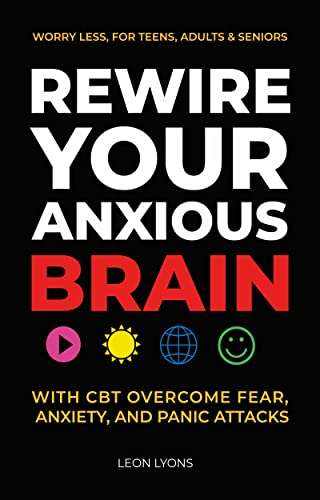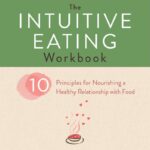As an Amazon Associate I earn from qualifying purchases.
Coping with Anxiety
Strategies for Success
In today’s fast-paced world, where stress and uncertainty often prevail, learning practical strategies to cope with anxiety is essential for our mental and emotional well-being.
Pressure can affect anyone, regardless of age or background, and its impact on daily life can be profound.
This comprehensive guide will delve into coping with anxiety, offering expert advice, personal insights, and actionable tips to help you navigate this challenging journey.
Let’s explore strategies to enhance your emotional well-being and find effective ways to reduce how it can impact on your life.

Understanding
Anxiety is a natural stress response, but it can disrupt your life when it becomes overwhelming and persistent.
Recognizing the signs and symptoms of is the first step in coping with it effectively.
Often it presents in various forms, such as generalized anxiety disorder, social anxiety disorder, panic disorder, and specific phobias.
It can manifest as excessive worry, restlessness, irritability, muscle tension, and sleep disturbances.
Understanding these symptoms can help identify when anxiety affects you or someone you care about.
Embracing Mindfulness
Mindfulness techniques, such as meditation and deep breathing, can help you stay grounded in the present moment and manage anxiety.
Incorporate these practices into your daily routine for lasting benefits.
Mindfulness involves paying attention to your thoughts and feelings without judgment.
By practicing mindfulness, you can become more aware of anxious thoughts and learn to let them go, reducing their power over you.
Seeking Professional Help
Sometimes, you may require professional intervention.
Learn when to reach out to a mental health expert and discover the various therapeutic approaches available.
Therapists and counselors can provide valuable tools for managing, such as cognitive-behavioral therapy (CBT) and exposure therapy.
These evidence-based treatments can help you change negative thought patterns and confront the triggers in a controlled manner.

Lifestyle Modifications
Simple changes in your daily habits, like regular exercise, a balanced diet, and adequate sleep, can significantly impact your stress levels.
Exercise releases endorphins, which are natural mood lifters.
Incorporating regular physical activity into your routine can significantly reduce stress—Additionally, a healthy diet and proper sleep hygiene support overall mental well-being.
Building a Support Network
Surrounding yourself with supportive friends and family can make a world of difference. Explore how to nurture these connections and seek help when needed.
Talking to loved ones about your anxiety can provide emotional support and reduce feelings of isolation.
They can offer a listening ear, encourage, and assist in finding professional help if necessary.
Coping at Work
The workplace can be challenging.
Discover strategies to manage stress on the job and create a harmonious work-life balance.
Setting boundaries, taking breaks, and practicing relaxation techniques during the workday can help you manage while maintaining productivity.
It’s essential to communicate your needs with your employer and seek accommodations if required.
Overcoming Social Anxiety
Social situations can be a triggers for many.
Gain insights into building confidence and conquering social stress.
Challenging negative self-beliefs, gradually exposing yourself to social situations, and seeking support from a therapist can help you overcome social fear.
Remember that it is common, and you’re not alone in your struggles.
Effective Time Management
Poor time management can fuel anxiety. Learn how to prioritize tasks and reduce the feeling of being overwhelmed.
Creating a to-do list, setting realistic goals, and breaking tasks into more minor, manageable steps can improve your time management skills.
This can alleviate anxiety related to deadlines and responsibilities.
Setting Realistic Goals
Setting achievable goals and celebrating small victories can boost your self-esteem and reduce the worry.
Breaking down larger goals into smaller, actionable steps allows you to track your progress and build confidence. Recognize that setbacks are a normal part of life and don’t define your worth or success.
Coping with Anxiety in Relationships
Anxiety can affect your relationships.
Explore communication techniques and ways to maintain healthy connections with your loved ones.
Open and honest communication is critical to managing stress within relationships.
Express your feelings and needs while actively listening to your partner’s concerns.
Seeking couples counseling can also be beneficial in resolving conflicts.
Identifying Triggers
Understanding what triggers your is crucial.
Discover how to identify and address these triggers effectively.
Keep a journal to track situations or thoughts that precede your episodes. Identifying patterns can help you develop strategies to manage or avoid triggers.
Coping Strategies for Panic Attacks
Panic attacks can be terrifying.
Learn practical coping strategies to manage and prevent them.
During a panic attack, focus on your breathing and slow it down.
Using grounding techniques, such as naming objects in the room or holding onto an ice cube, can help you regain control.
Seeking professional guidance for panic disorder is also recommended.
The Power of Positivity
A positive mindset can combat your stressors.
Explore techniques to cultivate optimism and resilience.
Practicing gratitude, challenging negative thoughts, and surrounding yourself with positive influences can shift your perspective and reduce your stress.
Engage in activities that bring you joy and satisfaction.
Creative Outlets
Expressing yourself through art, writing, or other creative outlets can provide a therapeutic.
Creative activities allow you to channel your emotions and thoughts into a productive outlet.
Creativity can be a powerful tool for managing stress, whether painting, writing in a journal, or playing a musical instrument.
Mindful Nutrition
Your diet can influence your mental health.
Discover how certain foods can help alleviate symptoms.
Incorporate foods rich in omega-3 fatty acids, antioxidants, and complex carbohydrates into your diet.
These nutrients have been shown to impact mood positively and can help reduce the symptoms.
Coping with Anxiety in Children
Children can also experience anxiety.
Gain insights into helping your child cope with their fears and worries.
Create a supportive and open environment for your child to express their feelings.
Teach them relaxation techniques, and consider involving a child psychologist or counselor if anxiety significantly impacts their daily life.
Read more about how to help our children. Breaking Free of Child Anxiety and OCD
Balancing Technology Use
Excessive screen time can contribute to anxiety. Learn to strike a healthy balance in the digital age.
Set limits on screen time for yourself and your family.
Engage in offline activities and encourage face-to-face interactions to reduce the harmful effects of technology-related stress.
Traveling
Traveling can be stressful, but with the right strategies, you can explore the world while managing your stress.
Plan your trips carefully, create a travel checklist, and have a support system.
Familiarize yourself with relaxation techniques you can use while traveling, such as deep breathing or mindfulness exercises.
Financial
Money worries can take a toll on your mental health.
Explore ways to alleviate financial anxiety and gain control over your finances.
Create a budget, set financial goals, and seek advice from financial experts if needed.
Taking proactive steps to manage your finances can reduce the anxiety associated with money concerns.
Coping with Stress during Health Crises
Health crises, like the current pandemic, can exacerbate anxiety.
Discover strategies for managing your mental health during challenging times.
Stay informed, but limit exposure to distressing news.
Maintain a routine, stay connected with loved ones, and prioritize self-care activities like exercise and relaxation to navigate health crises with resilience.

Coping during Grief
Grief and anxiety often go hand in hand. Learn how to navigate the complex emotions of loss while managing stress.
Grief is a natural response to loss, and it can intensify. Seek support from grief counselors or support groups to help you cope with both grief and stress.
Building Resilience
Resilience is the key to long-term anxiety management. Explore techniques to bounce back from adversity.
Resilience involves developing coping skills, maintaining a positive outlook, and seeking support when needed.
It’s a valuable asset in facing challenges with strength and determination.
Coping with Anxiety in Seniors
Anxiety is not limited to any age group. Discover how seniors can maintain their mental well-being in their golden years.
Seniors can benefit from social engagement, physical activity, and regular health check-ups to manage anxiety.
Connecting with peers and participating in hobbies can enhance their quality of life.
Rewire your Anxious Brain With CBT Overcome Fear, Anxiety, Panic Attacks, And Worry Less, For Teens, Adults & Seniors
FAQs
Anxiety often manifests as excessive worry, restlessness, and physical symptoms like a rapid heartbeat. If these persist, it’s essential to consult a healthcare professional for a proper diagnosis.
Anxiety is a common mental health condition that can affect anyone. Seeking help and using coping strategies are signs of strength and resilience.
Yes, exercise releases endorphins, which are natural mood lifters. Incorporating regular physical activity into your routine can significantly reduce your stress.
While there are natural remedies like herbal teas and supplements, it’s crucial to consult a healthcare provider before trying them. What works for one person may only work for one person.
Listening, offering emotional support, and encouraging them to seek professional help are essential to supporting a loved one with anxiety.
Anxiety may not always be completely cured, but it can be managed effectively with the right strategies and support.
Conclusion
Coping with anxiety is a journey that requires patience, self-compassion, and the right tools.
By exploring the strategies outlined in this guide, you can take significant steps toward improving your emotional well-being and finding relief from the stress impact on your life.
Remember, you are not alone in this journey; seeking help is a sign of strength. Embrace these coping strategies, and you’ll be better equipped to navigate life’s challenges with resilience and optimism.
Amazon and the Amazon logo are trademarks of Amazon.com, Inc or it's affiliates.
Related Posts
- Best Gift Ideas for Every Occasion
Best Gift Ideas for Every Occasion Finding the perfect gift can be challenging, whether for…
- Chickpea and Spinach Curry
Chickpea and Spinach Curry Indulge in the rich and flavorful experience of our Chickpea and…
- Best Tips to Stop Stress Eating
Best Tips to Stop Stress Eating In today's fast-paced world, stress has become an inevitable…







